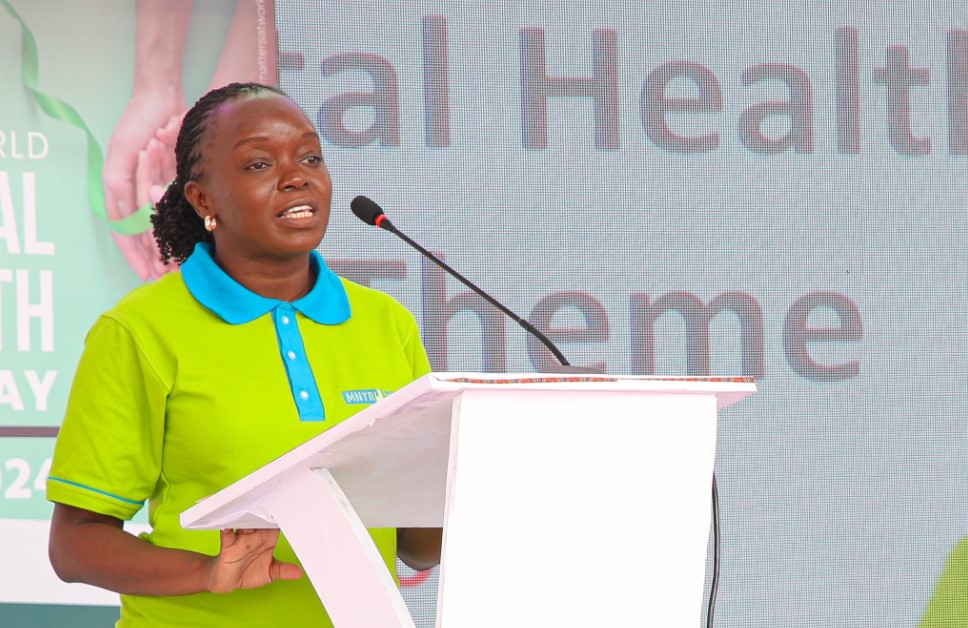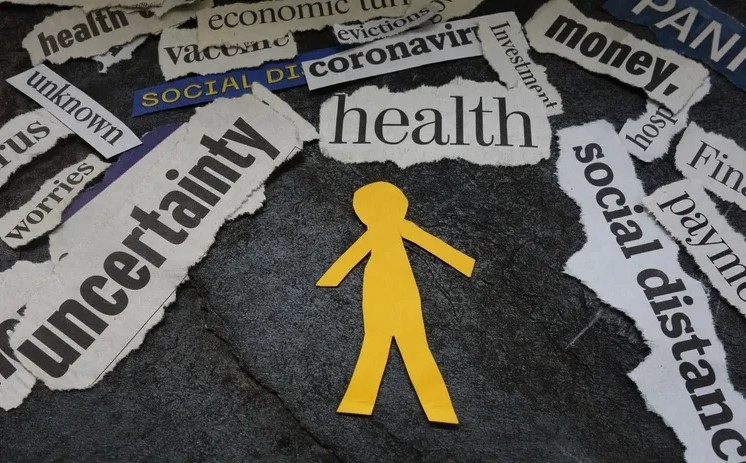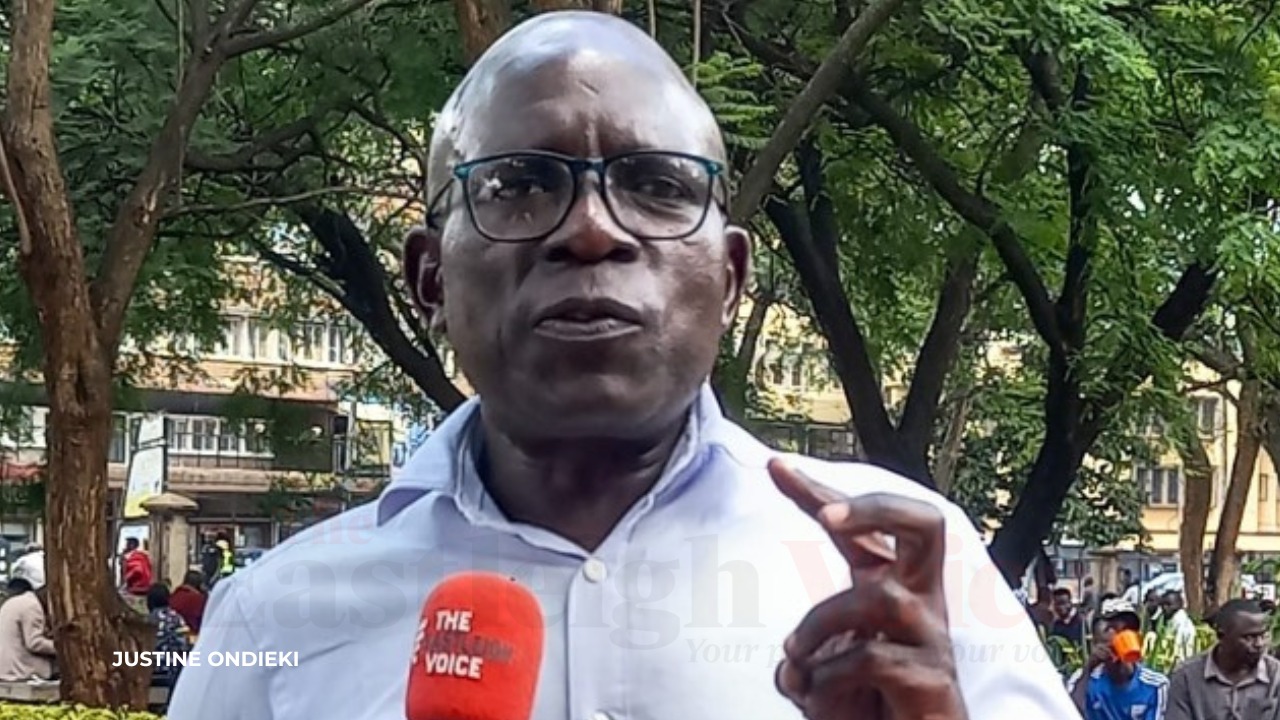The hidden toll on mental well-being of individuals struggling with anxiety

Many people spend a significant portion of their time at work, and toxic work environments are increasingly becoming a major contributor to mental health issues.
Nasra* was just 14 when her world turned upside down. Moving from her peaceful rural home to live with relatives in Nairobi, she was thrown into a life of intense worry and fear that quickly spiralled into panic attacks. Her biological parents, though unable to fully support her education, had provided her with a relatively serene upbringing. But in her new environment, peace was a foreign concept.
“My new home was full of anger and abuse,” Nasra recalls. “My uncle and aunt were constantly insulting each other, and when things got bad, their aggression shifted to the children. Everyone was shouted at and insulted. It was like living on a battlefield.”
More To Read
- Gen Z redefines freedom as Kenya marks 62 years of independence
- Violence is a normal part of life for many young children: Study traces the mental health impacts
- When birth brings heartbreak: Mothers share their stories of children with deformities
- Explainer: As mental health challenges rise, here is what you need to know about antidepressants
- Mental health advocates call for community-based support as economic strain deepens
- How to talk to your kids about mental health
What seemed like chaos to Nasra was just another day for her relatives. They had normalised a toxic environment, but for her, it was a jarring new reality. Growing up in a community where mental health struggles were rarely acknowledged and unable to reach her parents, she felt trapped.
“Every time my uncle came home, I would feel terrified. Even when no one was fighting, the fear didn’t leave me. Sometimes, I would just collapse. With no one to confide in, I tried to keep to myself, spending hours in my room. But it didn’t help.”
Eventually, Nasra was taken to the hospital and referred to a psychologist, who diagnosed her with anxiety and panic attacks. However, her guardians dismissed the diagnosis, claiming she was too young to be stressed. After all, they reasoned, she had everything she needed, including access to education.
“For years, I coped by avoiding social situations, staying quiet, and steering clear of confrontation,” she says. “When things got bad and people started arguing, I would zone out or put on my earphones. But the fear never really went away.”
Years later Nasra still struggles with her social life. She keeps to herself, rarely speaking to anyone outside her immediate family. She often hides behind the label of being an introvert, but deep down, she knows her avoidance of people stems from years of unresolved trauma.
Natural response
Anxiety is a natural response to stress or a perceived threat, characterised by feelings of worry, fear, or unease. It is a normal emotion that helps people prepare for challenges or danger. However, when anxiety becomes persistent, overwhelming, or disproportionate to the situation, it may indicate an anxiety disorder.
 Cabinet Secretary for Health Deborah Mlongo Barasa speaks on October 10, 2024, during the World Mental Health Day event held at Mathari National Teaching and Referral Hospital in Nairobi. (Photo: Ministry of Health)
Cabinet Secretary for Health Deborah Mlongo Barasa speaks on October 10, 2024, during the World Mental Health Day event held at Mathari National Teaching and Referral Hospital in Nairobi. (Photo: Ministry of Health)
The World Health Organization highlights that anxiety disorders, like other mental health conditions, arise from a complex interplay of social, psychological, and biological factors. While anyone can develop an anxiety disorder, individuals who have experienced abuse, significant losses, or other traumatic events are at a higher risk.
Many people spend a significant portion of their time at work, and toxic work environments are increasingly becoming a major contributor to mental health issues. This has been the reality for Esther Wairimu, who transitioned to a new job two years ago after a long struggle to find employment. While she now earns a salary, her employer’s cruel and insensitive remarks have deeply affected her, pushing her into depression. Yet, needing the job to make ends meet, she endures the toxic atmosphere, clinging to the hope of better days.
“My employer assumes they have a right to control or comment on my personal life just because I work for them, and it’s incredibly frustrating,” says Esther Wairimu. “Things like my beliefs and private life should never be up for discussion. No one should be coerced into sharing personal details, but my boss makes it a point to constantly demand answers. It’s so stressful.”
Wairimu has tried numerous times to address the issue directly with her employer, but her concerns are dismissed. She also faces stereotyping and prejudice, often being reduced to political and ethnic labels because she is Kikuyu.
“It’s always something like ‘Kikuyus are this or that’ or assumptions about single women living alone. Honestly, I’m overwhelmed. I’m actively looking for another job because the anxiety is just too much. I dread seeing him walk into the office, and when he’s around, I can’t even concentrate,” she shares.
The relentless stress has taken a toll on Wairimu’s mental and physical well-being. She has developed a nervous habit of rubbing her hands to cope with the anxiety, often to the point where her skin becomes red and irritated. The constant tension in her workplace has left her feeling trapped, exhausted, and desperate for an escape.
Hanna Muse, a counselling psychologist, highlights the increasing prevalence of anxiety disorders, particularly among young people. If not effectively managed, anxiety can lead to severe physical reactions, such as panic attacks, which may cause individuals to collapse or lose consciousness in high-stress situations.
"Anxiety triggers typically arise when individuals feel overwhelmed by circumstances, they believe they cannot handle or want to avoid. It’s important for them to recognize their triggers and know how to respond appropriately," says Hanna.
Symptoms
Anxiety manifests through both emotional and physical symptoms. Emotionally, individuals may experience constant worry, fear, restlessness, and a pervasive sense of impending doom. Physically, symptoms include a racing heart, difficulty breathing, chest tightness, dizziness, trembling, and digestive issues. Other signs include trouble concentrating, irritability, difficulty sleeping, and a general sense of being on edge. These reactions often feel disproportionate to the situation, exacerbating the anxiety further.
“One of the most effective methods is controlled breathing techniques, which help calm the body's fight-or-flight response. These techniques can significantly reduce the physical symptoms of anxiety, providing immediate relief. In more severe cases, medications such as selective serotonin reuptake inhibitors (SSRIs) may be prescribed to help manage symptoms and restore balance to the brain's chemistry.”
 In 2019, approximately 970 million people—roughly 1 in 8 individuals worldwide—were living with a mental disorder, with anxiety and depression being the most common. The COVID-19 pandemic further exacerbated the situation, causing a significant rise in mental health issues. (Photo: Shutterstock)
In 2019, approximately 970 million people—roughly 1 in 8 individuals worldwide—were living with a mental disorder, with anxiety and depression being the most common. The COVID-19 pandemic further exacerbated the situation, causing a significant rise in mental health issues. (Photo: Shutterstock)
Mindfulness meditation is another powerful tool. It enhances awareness of one’s thoughts and emotions without judgment, enabling individuals to manage anxiety more effectively. By cultivating this awareness, people can gain control over their emotions and create a sense of inner calm, reducing overall anxiety levels over time.
"By confronting anxiety triggers directly, individuals can reframe their thoughts and reduce the impact of stressors they may tend to avoid, which often creates tension," Dr. Muse explains. This approach helps individuals face their fears and challenges head-on, reducing their power over time.
Self-care and relaxation techniques, including avoiding substances like alcohol and drugs, regular exercise, and mindfulness practices, are crucial for managing anxiety. These approaches help reduce tension, promote mood stability, and improve overall well-being by calming the mind and easing physical symptoms of anxiety.
Anxiety is a prevalent mental health concern in Kenya, with notable gender differences. According to the 2022 Kenya National Adolescent Mental Health Survey, 26.2% of males and 27.2% of females reported experiencing anxiety. This indicates that a significant portion of the population, particularly adolescents, is affected by anxiety disorders.
Anxiety, which involves excessive worry, fear, and unease, is often triggered by various factors such as academic pressures, family issues, and societal expectations. In Kenya, the increasing pressures of modern life, combined with limited access to mental health care, contribute to the rising cases of anxiety among young people. The stigma surrounding mental health issues further exacerbates the situation, preventing many individuals from seeking the help they need.
In addition to anxiety, the survey also highlighted other mental health issues facing Kenyan adolescents, including depression, substance abuse, and suicidal thoughts.
In 2019, approximately 970 million people—roughly 1 in 8 individuals worldwide—were living with a mental disorder, with anxiety and depression being the most common. The COVID-19 pandemic further exacerbated the situation, causing a significant rise in mental health issues. Anxiety and major depressive disorders saw an increase of 26% and 28%, respectively, in just one year.
Although effective prevention and treatment options exist, the majority of those suffering from mental disorders still lack access to the care they need. On top of that, many individuals face stigma, discrimination, and violations of their human rights because of their conditions.
Anxiety disorders, which affect 301 million people globally in 2019—including 58 million children and adolescents—are characterized by overwhelming fear and worry. These symptoms often come with behavioural disturbances and are intense enough to cause significant distress or disrupt daily functioning.
Top Stories Today













































